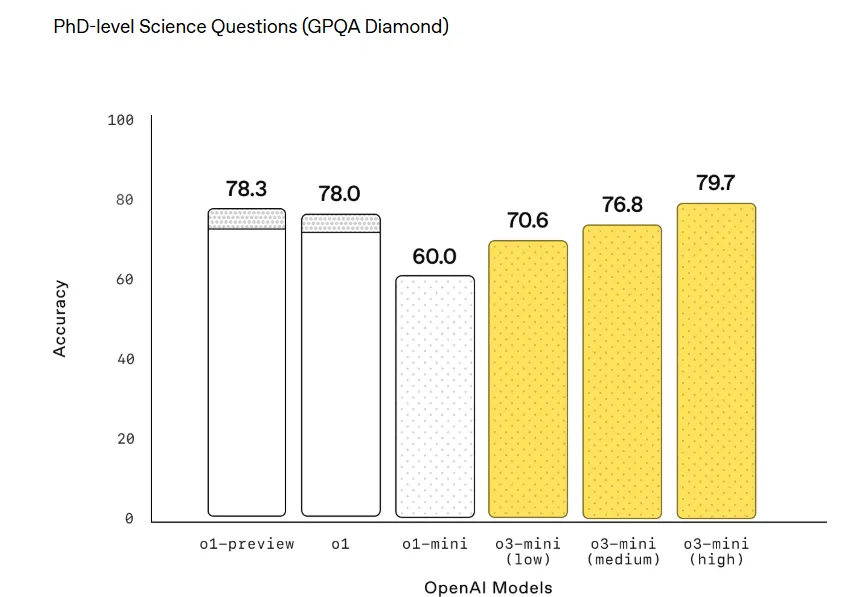artificial intelligence
Zuckerberg Knowingly Used Pirated Data to Train Meta AI, Authors Allege
Published
3 months agoon
By
admin

Mark Zuckerberg approved using pirated books to train Meta AI, even after his own team warned the material was illegally obtained, a group of authors allege in a recent court filing.
The allegations come from a copyright infringement lawsuit filed by a group of authors including the comedian Sarah Silverman, Christopher Golden, and Richard Kadrey in a California federal court in July 2023. The group claimed Meta misused their books to train its Llama LLM, and they’re asking for damages and an injunction to stop Meta from using their works. The judge in the case dismissed most of the author’s claims in November of that same year, but these recent allegations may breathe new life into the legal dispute.
“Meta’s CEO, Mark Zuckerberg, approved Meta’s use of the LibGen dataset notwithstanding concerns within Meta’s AI executive team (and others at Meta) that LibGen is ‘a dataset we know to be pirated,'” lawyers for the plaintiffs said in a Wednesday filing. Despite these red flags, the lawsuit alleges that, “after escalation,” Zuckerberg gave the green light for Meta’s AI team to proceed with using the controversial dataset.
Representatives for Meta did not immediately respond to Decrypt’s request for comment.
LibGen, short for Library Genesis, is an online platform that provides free access to books, academic papers, articles, and other written publications without properly abiding by copyright laws. It operates as a “shadow library,” offering these materials without authorization from publishers or copyright holders. It currently hosts over 33 million books and over 85 million articles.
The lawsuit alleges Meta tried to keep this under wraps until the last possible moment. Just two hours before the fact discovery deadline on December 13, 2024, the company dumped what plaintiffs describe as “some of the most incriminating internal documents it has produced to date.”
Meta’s own engineers seemed uncomfortable with the plan, according to statements in court filings. The group of authors allege internal messages show Meta engineers hesitated to download the pirated material, with one noting that “torrenting from a [Meta-owned] corporate laptop doesn’t feel right (smile emoji).” Nevertheless, they proceeded to not only download the books but also systematically strip out copyright information to prepare them for AI training, the lawsuit claims.
The latest filings in the lawsuit paint a picture of a company fully aware of the risks: One internal memo warned that “media coverage suggesting we have used a dataset we know to be pirated, such as LibGen, may undermine our negotiating position with regulators.” Yet Meta went ahead anyway, both downloading and distributing (or “seeding”) the pirated content through torrenting networks by January 2024, according to the lawsuit.
When questioned about these activities in a deposition, Zuckerberg appeared to distance himself from the decision, testifying that such piracy would raise “lots of red flags” and “seems like a bad thing.”
The court documents also suggest that Meta’s approach to handling copyrighted information paid more attention to model training than copyright rules. According to the filing, one engineer “filtered […] copyright lines and other data out of LibGen to prepare a CMI-stripped version of it to train Llama.” This systematic removal of copyright information could strengthen the authors’ claims that Meta knowingly tried to hide its use of pirated materials.
The revelations come at a crucial time for Meta’s AI ambitions. The company has been pushing hard to compete with OpenAI and Google in the AI space, with Llama 3.2 being the most popular open source LLM, and Meta AI being a solid free competitor to ChatGPT with similar features.
Most of these AI companies are facing legal battles due to their questionable practices when it comes to training their large language models. Meta was already sued by another group of authors for copyright infringements, OpenAI is currently facing different lawsuits for training its LLMs on copyrighted material, and Anthropic is also facing different accusations from authors and songwriters.
But in general the tech entrepreneurs and creators have been up in arms ever since generative AI exploded in popularity. There are currently dozens of different lawsuits against AI companies for willingly using copyrighted material to train their models. But as with most things on the bleeding edge, we’ll have to wait and see what the courts have to say about it all.
Generally Intelligent Newsletter
A weekly AI journey narrated by Gen, a generative AI model.
Source link
You may like


Ethereum fees drop to a 5-year low as transaction volumes lull


Bitcoin Price Holds Steady, But Futures Sentiment Signals Caution


Panama City Approves Bitcoin And Crypto Payments For Taxes, Fees, And Permits


Crypto Trader Says Solana Competitor Starting To Show Bullish Momentum, Updates Outlook on Bitcoin and Ethereum


weakness signals move toward lower support


Now On Sale For $70,000: The World’s First Factory Ready Open-Source Humanoid Robot
artificial intelligence
OpenAI Releases GPT-4.1: Why This Super-Powered AI Model Will Kill GPT-4.5
Published
2 days agoon
April 14, 2025By
admin
OpenAI unveiled GPT-4.1 on Monday, a trio of new AI models with context windows of up to one million tokens—enough to process entire codebases or small novels in one go. The lineup includes standard GPT-4.1, Mini, and Nano variants, all targeting developers.
The company’s latest offering comes just weeks after releasing GPT-4.5, creating a timeline that makes about as much sense as the release order of the Star Wars movies. “The decision to name these 4.1 was intentional. I mean, it’s not just that we’re bad at naming,” OpenAI product lead Kevin Weil said during the announcement—but we are still trying to find out what those intentions were.
GPT-4.1 shows pretty interesting capabilities. According to OpenAI, it achieved 55% accuracy on the SWEBench coding benchmark (up from GPT-4o’s 33%) while costing 26% less. The new Nano variant, billed as the company’s “smallest, fastest, cheapest model ever,” runs at just 12 cents per million tokens.
Also, OpenAI won’t upcharge for processing massive documents and actually using the one million token context. “There is no pricing bump for long context,” Kevin emphasized.
The new models show impressive performance improvements. In a live demonstration, GPT-4.1 generated a complete web application that could analyze a 450,000-token NASA server log file from 1995. openAI claims the model passes this test with nearly 100% accuracy even at million tokens of context.
Michelle, OpenAI’s post-training research lead, also showcased the models’ enhanced instruction-following abilities. “The model follows all your instructions to the tea,” she said, as GPT-4.1 dutifully adhered to complex formatting requirements without the usual AI tendency to “creatively interpret” directions.
How Not to Count: OpenAI’s Guide to Naming Models
The release of GPT-4.1 after GPT-4.5 feels like watching someone count “5, 6, 4, 7” with a straight face. It’s the latest chapter in OpenAI’s bizarre versioning saga.
After releasing GPT-4 it upgraded the model with multimodal capabilities. The company decided to call that new model GPT-4o (“o” for “omni”), a name that could be also be read as “four zero” depending on the font you use
Then, OpenAI introduced a reasoning-focused model that was just called “o.” But don’t confuse OpenAI’s GPT-4o with OpenAI’s o because they are not the same. Nobody knows why they picked this name, but as a general rule of thumb, GPT-4o was a “normal” LLM whereas OpenAI o1 was a reasoning model.
A few months after the release of OpenAI o1, came OpenAI o3.
But what about o2?—Well, that model never existed.
“You would think logically (our new model) maybe should have been called o2, but out of respect to our friends at Telefonica—and in the grand tradition of open AI being really truly bad at names—it’s going to be called o3,” Sam Altman said during the model’s announcement.
The lineup further fragments with variants like the normal o3 and a smaller more efficient version called o3 mini. However, they also released a model named “OpenAI o3 mini-high” which puts two absolute antonyms next to each other because AI can do miraculous things.In essence, OpenAI o3 mini-high is a more powerful version than o3 mini, but not as powerful as OpenAI o3—which is referenced in a single chart by Openai as “o3 (Medium),” as it should be. Right now ChatGPT users can select either OpenAI o3 mini or OpenAI o3 mini high. The normal version is nowhere to be found.

Also, we don’t want to confuse you anymore, but OpenAI already announced plans to release o4 soon. But, of course, don’t confuse o4 with 4o because they are absolutely not the same: o4 reasons—4o does not.
Now, let’s go back to the newly announced GPT-4.1. The model is so good, it is going to kill GPT-4.5 soon, making that model the shortest living LLM in the history of ChatGPT. “We’re announcing that we’re going to be deprecating GPT-4.5 in the API,” Kevin declared, giving developers a three-month deadline to switch. “We really do need those GPUs back,” he added, confirming that even OpenAI can’t escape the silicon shortage that’s plaguing the industry.
At this rate, we’re bound to see GPT-π or GPT-4.√2 before the year ends—but hey, at least they get better with time, no matter the names.
The models are already available via API and in OpenAI’s playground, and won’t be available in the user-friendly ChatGPT UI—at least not yet.
Edited by James Rubin
Generally Intelligent Newsletter
A weekly AI journey narrated by Gen, a generative AI model.
Source link
artificial intelligence
Where Top VCs Think Crypto x AI Is Headed Next
Published
4 days agoon
April 13, 2025By
admin

The proliferation of mainstream artificial intelligence (AI) tools in the last couple of years has stirred the crypto and blockchain industry to explore decentralized alternatives to Big Tech products.
The synergy between AI and blockchain is built on addressing the risk of centralized ownership and access to data that powers AI. The theory goes that decentralization can mitigate against the entire AI economy being powered by the data owned by a few tech behemoths like Alphabet (GOOG), Amazon (AMZN), Microsoft (MSFT), Alibaba (9988) and Tencent (0700).
It is unclear as yet whether or not this will prove to be a significant problem at all, much less whether the blockchain industry will be able to solve it. What is clear, however, is that crypto venture capitalists (VCs) are willing to spend millions of dollars finding out. Decentralized AI has thus far attracted $917 million in VC and private equity money, according to startup deal platform Tracxn.
The question remains whether the trend of investing in blockchain-based AI is still built on hype or has now transcended to being the real deal.
Blockchain investment company Theta Capital described AI x crypto as “the inevitable backbone of AI,” in a recent “Satellite View” report, which explored insights and outlooks from the sector’s prominent investors.
AI agents
“No trend stands out more than the intersection of AI and crypto,” the report said, using the examples of AI agents trading on blockchains and even launching tokens.
This may appear to be a more sophisticated form of speculation for degens, but Theta argues it’s a route to tackling some of AI’s problems that only crypto can solve.
“Crypto wallets enable the participation of autonomous agents in financial markets,” according to the report. “Decentralized token networks are bootstrapping the supply side of key AI infrastructure for compute, data and energy.”
The report’s conclusion is far from being hype and speculation; AI x crypto is “the new meta.” Meta is short for “metagame,” a term borrowed from gaming referring to the dominant way of playing with regard to characters, strategies or moves based on the competitive landscape.
Decentralized AI
Alex Pack, managing partner of blockchain venture capital firm Hack VC, described Web3 AI as “the biggest source of alpha in investing today,” in the “Satellite View” report.
Hack VC has dedicated 41% of its latest fund to Web3 AI, according to the report, in which it sees the main challenge as building a decentralized alternative to the AI economy.
“AI’s rapid evolution is creating massive efficiencies, but also increasing centralization,” Pack said.
“The intersection of crypto and AI is by far the biggest investment opportunity in the space, offering an open, decentralized alternative.”
One of Hack VC’s most prominent portfolio companies is Grass, which encourages users to participate in AI networks by offering up their unused internet bandwidth in return for tokens.
This is designed as an alternative to large firms installing software code into apps in order to scrape their users’ data.
“Users unwittingly donate their bandwidth without compensation,” Grass founder Andrej Radonjic said in Theta’s report.
“Grass provides an alternative [by] forming a massive opt-in, peer-to-peer network able to produce high-quality data at the scale of Google and Microsoft.”
The dreaded AI “takeover”
Decentralized AI presents risks for investors, Theta concedes. It could lead to the proliferation of all the least desirable facets of the internet as it already exists: putrid online discourse, spam emails or vapid social media content in the form of blogs, videos or memes. In the crypto world, an example of this may be the creation of meme tokens. The questionable endorsements, the wash trading and the pump and dumps can all be handled by AI engines even more efficiently than humans.
Some VCs see blockchain as the basis for mitigation. Olaf Carlson-Wee, CEO and founder of Polychain, provided the examples of proof-of-humanity mechanisms to verify that users are human and disincentivizing spam through micropayments or spam.
“If sending an email costs $0.01, it would destroy the economics of spam while remaining affordable for average users,” he said in the report.
With blockchain possibly providing some of these safeguards, Carlson-Wee believes AI will underpin digital and financial systems, as they could outperform humans in markets. This reality, he claims, would be gladly accepted, as opposed to dreaded as some sort of bleak dystopia.
“Over time, AI systems will evolve into long-term capital allocators, predicting trends and opportunities years into the future, [which] humans will entrust their funds to, because of the superior ability to make data-driven decisions,” Carlson-Wee said.
“The AI takeover won’t be a war we lose – it will be a suggestion we agree to,” he concluded.
Source link
artificial intelligence
How a Philosopher Who Criticized Trump and Musk Turned Out to Be an AI Experiment
Published
4 days agoon
April 12, 2025By
admin

Jianwei Xun, the supposed Hong Kong philosopher whose book “Hypnocracy” claims Elon Musk and President Donald Trump use utopian promises and empty language, never really existed, at least not physically.
Instead, the acclaimed author was a “collaborative” creation between Andrea Colamedici, an Italian publisher, and two AI tools – Claude from Anthropic and ChatGPT from OpenAI.
“I wanted to write a book that would help people better understand the new ways power manifests itself,” Colamedici told Decrypt.
But it wasn’t until after an investigative report from L’Espresso that Xun’s website was updated to acknowledge the experiment, snapshots from Wayback Machine reviewed by Decrypt show.
Still, the book received critical acclaim.
L’Espresso reports that L’Opinion, a French daily, had detailed how President Emmanuel Macron had “appreciated” Xun’s writings. Earlier in February, a roundtable at the World AI Cannes Festival extensively discussed Xun’s ideas.
Éditions Gallimard, a leading French publisher, has committed to a new translation from the Italian original, after the first edition in French from Philosophie Magazine. A Spanish translation from Editorial Rosamerón is slated for release on April 20.
Vibe philosophy?
Xun was “an exercise in ontological engineering,” Colamedici explained in a post-revelation interview with Le Grand Continent.
While this experiment with AI looked novel, critics point out the book could be in trouble.
The European Union’s AI Act, approved in March 2024, considers failure to label AI-generated content a serious violation – a requirement critics claim Colamedici’s experiment disregarded.
In previous versions of its bio, Xun was described as a “Hong Kong-born cultural analyst and philosopher” who studied at “Dublin University.”
That wasn’t true.
According to an anonymous source from the University College of Dublin’s philosophy department, no person named “Jianwei Xun” exists in their database or those of other Dublin-based universities.
“The fact that the author had inverted the Chinese order ‘surname-name’ was an immediate red flag,” Laura Ruggieri, a Hong Kong-based researcher, told Decrypt, explaining how she spotted inconsistencies as early as February.
Ruggieri previously taught semiotics—the study of symbols and signs—at the Hong Kong Polytechnic University. She asked her colleagues about Xun. Nobody knew who that was.
“Not a single one of them has ever met Xun or heard his name,” Ruggieri said. “If Colamedici had used his real name and admitted that AI had written the book, no one would have bought it.”
Responding to those allegations to Decrypt, Colamedici claimed these were deliberate clues “left for those willing to question and investigate,” claiming the revelation was “predetermined.”
“We actually did everything possible to make Xun’s non-existence evident to anyone with even minimally inquisitive eyes,” Colamedici said.
Colamedici insists that AI did not write the book. Instead, Claude and ChatGPT “served as interlocutors.”
In the words of Xun
The book describes itself as a “journey into the fractured mirror of modern reality,” and discusses how Musk and Trump have constructed an alternate reality through obsessive repetition.
It was written “for those who suspect that the world they see is only a shadow of something far more complex,” its Amazon blurb claims.
Xun’s thoughts center on “hypnocracy,” describing a regime that exerts control through “algorithmic modulation” of collective consciousness instead of censorship.
In English: fake news.
Xun claims that Trump’s speeches and social media posts create conditions of uncertainty.
Trump “empties language: his words, repeated endlessly, become empty signifiers, devoid of meaning yet charged with hypnotic power,” Xun wrote.
Xun claims Musk makes promises “destined not to materialize,” by “flooding our imagination” with ventures such as space colonization and neural interfaces.
“Together they modulate desires, rewrite expectations, colonize the unconscious,” the AI philosopher wrote.
Spokepeople for Musk and Trump did not immediately respond to Decrypt’s request for comment.
Edited by Sebastian Sinclair
Generally Intelligent Newsletter
A weekly AI journey narrated by Gen, a generative AI model.
Source link
Republican States Pause Lawsuit Against SEC Over Crypto Authority

Ethereum fees drop to a 5-year low as transaction volumes lull

Bitcoin Price Holds Steady, But Futures Sentiment Signals Caution

Panama City Approves Bitcoin And Crypto Payments For Taxes, Fees, And Permits

Crypto Trader Says Solana Competitor Starting To Show Bullish Momentum, Updates Outlook on Bitcoin and Ethereum

weakness signals move toward lower support

Now On Sale For $70,000: The World’s First Factory Ready Open-Source Humanoid Robot

What Next for ETH as Traders Swap $86M into Solana DeFi protocols ?

Why Did Bitcoin Price (BTC) Fall on Wednesday Afternoon

Solana price is up 36% from its crypto market crash lows — Is $180 SOL the next stop?

Solana Retests Bearish Breakout Zone – $65 Target Still In Play?

How Expanding Global Liquidity Could Drive Bitcoin Price To New All-Time Highs

Apple Delists 14 Crypto Apps in South Korea Including KuCoin and MEXC Exchanges Amid Regulatory Crackdown

Athens Exchange Group eyes first onchain order book via Sui

Futureverse Acquires Candy Digital, Taps DC Comics and Netflix IP to Boost Metaverse Strategy

Arthur Hayes, Murad’s Prediction For Meme Coins, AI & DeFi Coins For 2025

Expert Sees Bitcoin Dipping To $50K While Bullish Signs Persist

Aptos Leverages Chainlink To Enhance Scalability and Data Access

Bitcoin Could Rally to $80,000 on the Eve of US Elections

Crypto’s Big Trump Gamble Is Risky

Institutional Investors Go All In on Crypto as 57% Plan to Boost Allocations as Bull Run Heats Up, Sygnum Survey Reveals

Sonic Now ‘Golden Standard’ of Layer-2s After Scaling Transactions to 16,000+ per Second, Says Andre Cronje

3 Voting Polls Show Why Ripple’s XRP Price Could Hit $10 Soon

Ripple-SEC Case Ends, But These 3 Rivals Could Jump 500x

Has The Bitcoin Price Already Peaked?

The Future of Bitcoin: Scaling, Institutional Adoption, and Strategic Reserves with Rich Rines

A16z-backed Espresso announces mainnet launch of core product

Xmas Altcoin Rally Insights by BNM Agent I

Blockchain groups challenge new broker reporting rule

I’m Grateful for Trump’s Embrace of Bitcoin
Trending

 24/7 Cryptocurrency News5 months ago
24/7 Cryptocurrency News5 months agoArthur Hayes, Murad’s Prediction For Meme Coins, AI & DeFi Coins For 2025

 Bitcoin3 months ago
Bitcoin3 months agoExpert Sees Bitcoin Dipping To $50K While Bullish Signs Persist

 24/7 Cryptocurrency News3 months ago
24/7 Cryptocurrency News3 months agoAptos Leverages Chainlink To Enhance Scalability and Data Access

 Bitcoin5 months ago
Bitcoin5 months agoBitcoin Could Rally to $80,000 on the Eve of US Elections

 Opinion5 months ago
Opinion5 months agoCrypto’s Big Trump Gamble Is Risky

 Bitcoin5 months ago
Bitcoin5 months agoInstitutional Investors Go All In on Crypto as 57% Plan to Boost Allocations as Bull Run Heats Up, Sygnum Survey Reveals

 Altcoins3 months ago
Altcoins3 months agoSonic Now ‘Golden Standard’ of Layer-2s After Scaling Transactions to 16,000+ per Second, Says Andre Cronje

 Ripple Price4 weeks ago
Ripple Price4 weeks ago3 Voting Polls Show Why Ripple’s XRP Price Could Hit $10 Soon


